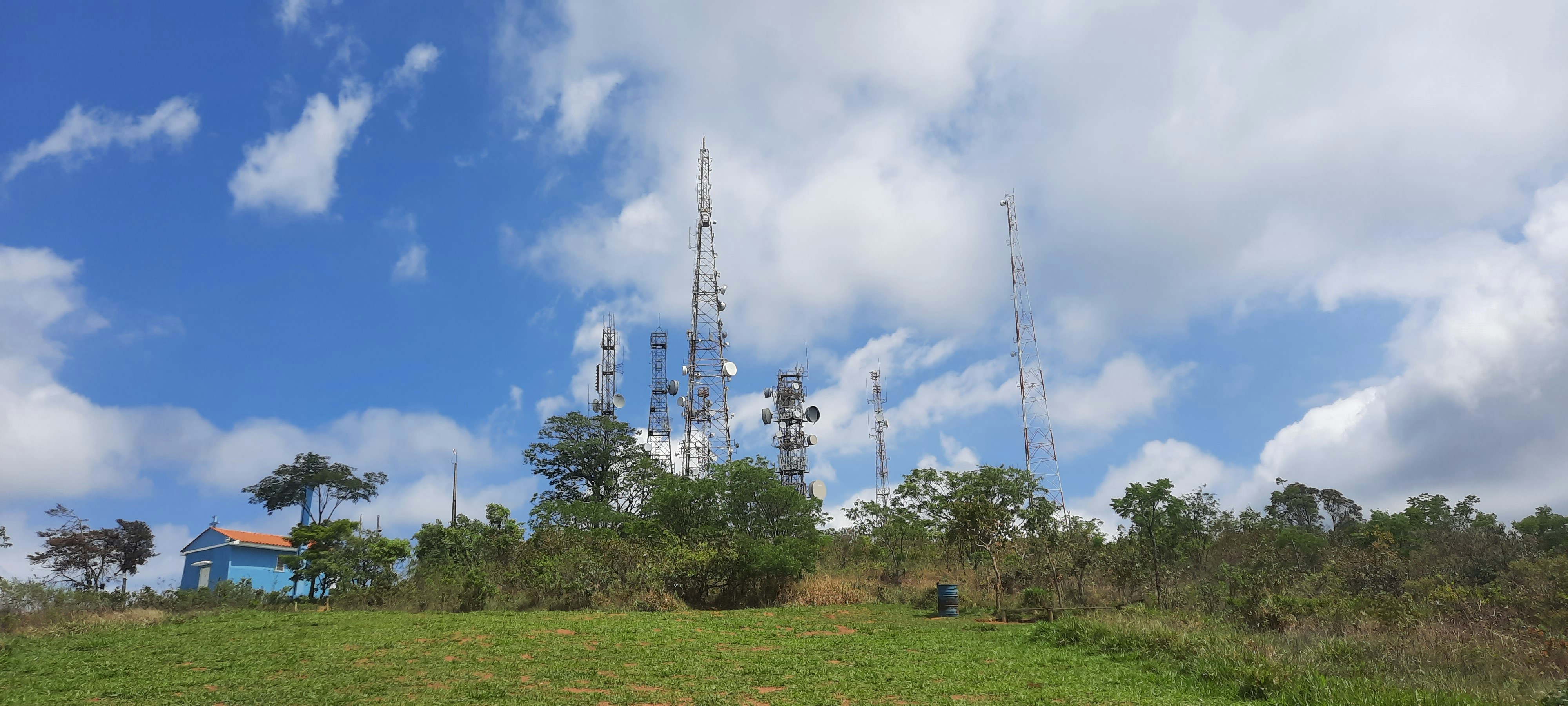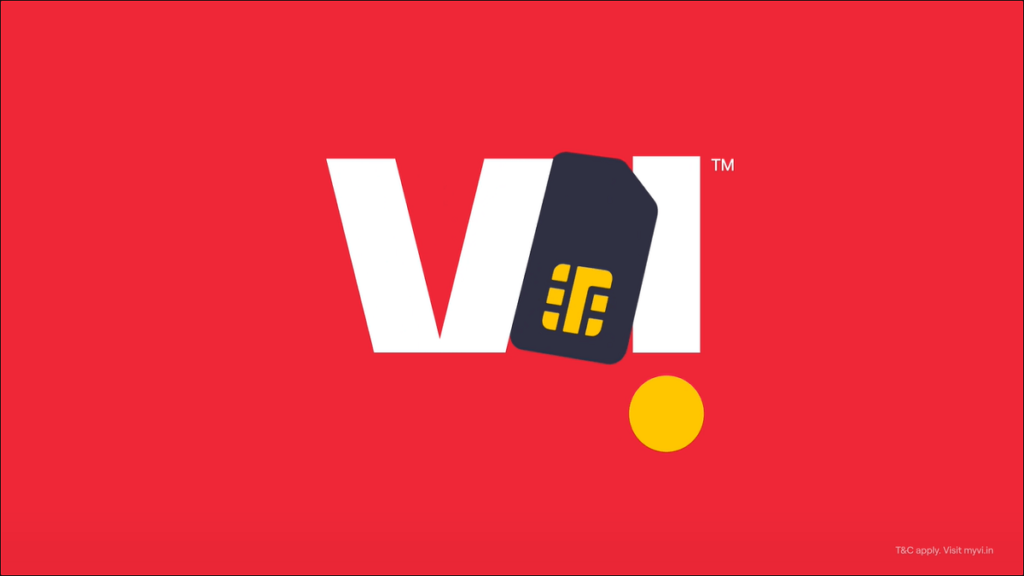Vodafone Idea, commonly referred to as Vi, stands as the third-largest telecommunications operator in India, a position it has held since the merger of Vodafone India and Idea Cellular in 2018. This merger aimed to create a competitive force against industry giants like Reliance Jio and Airtel. However, Vodafone Idea has encountered significant hurdles in the form of financial instability, intense competition, and regulatory challenges that have plagued its operations in recent years. The company has struggled to maintain its market share, facing an uphill battle against lower pricing strategies employed by its rivals, which have propelled Jio and Airtel to dominate the marketplace.
The financial situation of Vodafone Idea has been particularly precarious, characterized by a massive debt burden that led to substantial losses over the past few years. Despite efforts to turn the tide, including capital infusions from major stakeholders, the lack of adequate government support has hindered its recovery. The company has sought relief through various channels, including requests for the government to defer spectrum payments and modify regulatory tariffs that would ease the financial pressure. However, the response has been lukewarm, leaving Vodafone Idea with a limited arsenal to maneuver through its challenges.
Moreover, the competitive landscape has intensified, reflecting a broader trend of consolidation in the telecom sector. This has compelled Vodafone Idea to re-evaluate its strategic initiatives and consider potential partnerships or mergers that could bolster its financial standing and market reach. The reliance on governmental assistance and a supportive regulatory environment has become increasingly critical for Vodafone Idea’s survival, as it strives to recover from its tumultuous past and stabilize its operations in the evolving telecom industry.
The Role of the Government in Supporting Telecom Operators
The relationship between telecommunications operators and government entities is crucial, especially during challenging times. Telecom operators like Vodafone Idea (Vi) typically expect substantial support from the government to foster a healthy operational environment. This expectation stems from the significant roles these companies play in national infrastructure and their contributions to economic growth. The government’s involvement is especially vital during crises, where timely intervention can mean the difference between survival and operational failure.
Historically, telecom companies have relied on policymakers for a range of support measures, including financial aid, regulatory easing, and infrastructural assistance. For instance, during the implementation of new technologies or broadening of service reach, operators often look towards government initiatives that facilitate smoother transitions. The government’s actions, such as the allocation of spectrum and revision of telecom policies, directly affect the operational viability of telecom operators, including Vodafone Idea.
However, the past few years have shown that government support can be inconsistent. In situations like the financial distress faced by Vodafone Idea, the lack of decisive aid has raised concerns among stakeholders. While some initiatives have been announced, such as deferred payment schedules for spectrum dues, these measures often fall short of what telecom operators need during emergencies. The implications of limited support are far-reaching, often leading to liquidity challenges and operational cutbacks at companies like Vi.
Consequently, the current stance of the government on matters concerning Vodafone Idea reflects not only its position on the telecom sector but also sets a precedent for how crises might be managed in the future. As Vodafone Idea seeks to stabilize its operations and regain its footing, understanding the historical context of government engagement becomes increasingly significant.
The Decline of Vodafone Idea: Factors at Play
The decline of Vodafone Idea, commonly referred to as Vi, has become a subject of significant concern within the telecommunications sector. Several interrelated factors contribute to the company’s dwindling market performance, and understanding these issues is crucial in assessing its current challenges and future viability.
One of the primary issues is the network quality offered by Vodafone Idea. The company has struggled to maintain competitive network performance, which has led to a decrease in customer satisfaction. Reports indicate that customers frequently face dropped calls, slow internet speeds, and inconsistent service coverage, driving them towards rival providers like Airtel and Jio. As consumer expectations for seamless connectivity rise, any perceived shortcomings in network quality directly impact user retention and trust in the brand.
User experience is another pivotal factor affecting Vodafone Idea’s market presence. Subscribers today have a plethora of options when it comes to telecommunications services, and any negative experiences can lead to increased customer churn. The company’s customer service has also received criticism, with consumers reporting long wait times and inadequate support for resolving issues. Such experiences lead to dissatisfaction and prompt users to consider alternatives, further exacerbating Vodafone Idea’s struggles.
Competition is indeed fierce in the Indian telecom landscape. Rivals such as Airtel and Jio have invested heavily in enhancing their services, leading to significant market share gains at the expense of Vodafone Idea. These competitors not only offer superior technology and faster service but also present attractive pricing plans, which further entices customers dissatisfied with Vodafone Idea’s offerings.
In essence, the convergence of issues surrounding network quality, user experience, and fierce competition has significantly burdened Vodafone Idea’s operations. As the company faces these challenges, it will need to address these core areas to halt its decline and regain its footing in an increasingly competitive market.
Adjusted Gross Revenue (AGR) Dues: A Heavy Burden
The concept of Adjusted Gross Revenue (AGR) has significant implications for telecom operators in India, particularly for Vodafone Idea, often referred to as Vi. AGR dues are calculated based on a company’s revenue and encompass various streams of income, including not just core telecom services but also non-core activities. The Supreme Court of India has mandated that telecom companies must pay AGR dues, which has posed a considerable financial burden on Vodafone Idea.
The roots of the AGR issue trace back to a Supreme Court ruling in 2019, which redefined the components constituting AGR, compelling operators like Vodafone Idea to pay dues that included revenues from ancillary services. The ruling was particularly problematic for Vi, which has been struggling under an already challenging business environment marked by fierce competition and declining market share. The AGR dues highlight the fact that the company must not only navigate its operational costs but also manage a hefty liability arising from the past miscalculations and definitions that the court has clarified.
The imposition of these dues has forced Vodafone Idea to reassess its business strategy and operational viability. It has impacted their cash flow and financial planning, leading to a need for immediate capital injection, which the company has sought through various means, including seeking investments and partnerships. The recent interventions from the Supreme Court encouraging the government to possibly reconsider some aspects of the AGR calculation have engendered hope for Vodafone Idea but also emphasize the precariousness of their current position within the Indian telecom sector.
As Vodafone Idea navigates these financial challenges, it becomes even more critical for them to innovate and provide value to customers in order to regain stability and market position. The heavy burden of AGR dues looms large over the company, influencing its operational and strategic decisions moving forward.
Government’s Response to Vodafone Idea’s Proposals
Vodafone Idea, also known as Vi, has made several proposals to the Indian government seeking relief amid ongoing financial challenges. These proposals primarily focus on regulatory easing, deferred spectrum payments, and enhanced financial support mechanisms. Despite the efforts made by Vi to engage the government, the response has been relatively lukewarm, with officials emphasizing that while the government is keen on the health of the telecom sector, it is not in a position to extend significant financial bailouts.
The Minister for Communications has acknowledged the challenges faced by Vodafone Idea but has reiterated that the government’s ability to intervene is constrained by fiscal responsibilities and economic considerations. While there have been discussions regarding potential reforms aimed at providing a more favorable operating environment for telecom companies, including Vodafone Idea, concrete actions have yet to materialize. The government’s focus appears to be on ensuring market stability rather than directly intervening to support specific companies.
Moreover, the government’s limited engagement with Vodafone Idea’s requests has created a sense of uncertainty in the market. Executives from the company have expressed concern over the slow pace of dialogue regarding their proposals, which they believe are essential for the sustainability of Vi. Instances where the government has mentioned the potential for supportive measures have left room for hope but have not translated into actionable plans. This dynamic has left Vodafone Idea in a precarious position, attempting to navigate the complexities of the telecom landscape with insufficient backing from regulatory bodies.
In essence, Vodafone Idea continues to seek government intervention while facing an uphill battle in garnering a robust response. The telecom industry’s challenges require collaborative solutions, but the current state of engagement indicates that immediate relief may not be forthcoming.
Public Market Dynamics and Management Responsibilities
As a public entity, Vodafone Idea, commonly referred to as Vi, operates within a complex framework characterized by distinct governance, strategic direction, and obligations to its shareholders. Being publicly traded means that the company is subject to scrutiny from investors, analysts, and regulatory bodies, which ultimately influences its operational decisions and strategic initiatives. Immediate transparency in reporting financial performance is critical, as shareholders expect regular updates on the company’s health and performance metrics.
One of the primary implications of being a public entity is that Vodafone Idea must prioritize shareholder interests while also managing various challenges in the competitive telecommunications market. This necessitates a robust governance structure that includes a board of directors responsible for upholding fiduciary duties to ensure that decisions align with shareholder expectations. The board is tasked with navigating the complexity of market conditions, emerging technologies, and evolving consumer preferences while also addressing regulatory requirements that are set forth by entities like the Telecom Regulatory Authority of India (TRAI).
The management of Vodafone Idea is expected to formulate strategies that not only enhance profitability but also improve customer satisfaction and market share. With the recent emphasis on financial sustainability amid mounting debts, there is a pressing responsibility to communicate effectively with shareholders about the company’s strategies for navigating these challenges. Recent statements from government ministers further highlight that Vodafone Idea must handle its business challenges independently, suggesting that external support may not be readily available.
Hence, the dual responsibilities of managing immediate operational hurdles while also focusing on long-term shareholder value creation require a delicate balance for Vodaforia Idea. This intricate dynamic underscores the complexity of operations for a public entity and the critical nature of effective management in steering the company towards success in a fluctuating market environment.
Impact of Past Government Support on Vodafone Idea
The trajectory of Vodafone Idea, often referred to as Vi, has been significantly influenced by the type and extent of government assistance it has received in recent years. One noteworthy measure was the granting of deferred payment options for the amount owed to the government, particularly concerning spectrum fees and adjusted gross revenue (AGR) dues. This initiative was designed to alleviate immediate financial pressures, allowing Vodafone Idea to focus on operational sustainability rather than being burdened by short-term obligations.
Additionally, the government’s decision to convert a portion of these dues into equity provided a vital lifeline for Vodafone Idea. By doing so, the authorities aimed to bolster the financial structure of Vi, thus enabling the company to access the necessary capital for re-strategizing its operations. This equity infusion was not just a stopgap measure; it represented a broader commitment to ensuring that Vodafone Idea remains a viable player in the highly competitive telecommunications landscape in India.
However, the effectiveness of these government measures has arguably been mixed. While the deferred payments and equity conversion provided temporary relief, Vodafone Idea has continued to face challenges in securing a sustainable financial footing. The continuous erosion of market share to competitors like Reliance Jio and Bharti Airtel raises questions regarding the long-term impact of government interventions. Ultimately, these past actions have played a role in shaping the current landscape for Vodafone Idea, but ongoing market dynamics and competition necessitate further strategic adaptations beyond mere government support.
In conclusion, while the government’s past assistance has provided some respite, it is clear that Vodafone Idea will need to explore comprehensive strategies to enhance its financial stability and regain market confidence in a challenging business environment.
Future Prospects for Vodafone Idea: A Long Road Ahead
The future prospects for Vodafone Idea, commonly referred to as Vi, remain uncertain amid a challenging business landscape characterized by intense competition and limited government support. As one of the major telecom providers in India, Vodafone Idea has struggled to maintain its subscriber base and financial stability in the wake of increased competition from rival operators. The emergence of new entrants and the aggressive pricing strategies of companies such as Reliance Jio have significantly eroded Vi’s market share, pushing it to the brink of sustainability.
One of the key challenges facing Vodafone Idea is its financial health, which has been adversely affected by mounting debt and regulatory pressures. The company’s attempts to renegotiate terms with creditors and seek additional capital infusions have met with mixed success. Investors are closely monitoring Vi’s ability to implement effective business strategies that could lead to a turnaround. This includes optimizing operational efficiencies, streamlining services, and potentially leveraging technological advancements to enhance customer engagement and user experience.
Moreover, the government’s stance on the telecom sector will play an instrumental role in shaping Vodafone Idea’s future. With the introduction of initiatives aimed at enabling sectoral recovery, there remains the possibility of supportive policies that could aid Vi in its efforts. However, if the current trajectory persists, wherein support is limited, the company may face further challenges, potentially leading to continued deterioration or a forced consolidation within the industry.
Ultimately, the path ahead for Vodafone Idea hinges on its ability to adapt and innovate amidst a fiercely competitive environment. The next few quarters will be crucial in determining whether Vi can emerge from its current predicament or if it will succumb to the mounting pressures inherent in the telecommunications industry. Stakeholders will need to remain vigilant as they assess the company’s strategic moves in an ever-evolving marketplace.
Conclusion: The Path Forward for Vodafone Idea
Throughout this exploration of Vodafone Idea (Vi), it is evident that the company faces substantial challenges in navigating a competitive telecom landscape with limited government support. As the joint venture between Vodafone Group and Aditya Birla Group strives to strengthen its position, an emphasis on self-management and innovative strategies is paramount. It is essential for Vodafone Idea to carve out a distinct identity that transcends the hurdles presented by market dynamics and regulatory frameworks.
One of the foremost strategies must involve optimizing operational efficiencies. By capitalizing on its existing infrastructure and resources, Vodafone Idea can streamline processes to reduce costs while enhancing service delivery. This approach not only strengthens the company’s financial foundation but also positions it favorably among consumers who seek reliable services amidst a plethora of choices. Furthermore, investing in technology and digital transformation can allow Vodafone Idea to improve customer experiences and expand its market reach.
Another critical aspect of the path forward involves focusing on customer engagement and tailored solutions. By understanding the diverse needs of its customer base, Vodafone Idea can develop customized offerings that resonate with different segments. Enhanced customer support, promotional campaigns, and loyalty programs can foster stronger customer relationships and increase retention rates. Additionally, leveraging data analytics can provide insights into emerging trends and preferences, empowering Vodafone Idea to remain agile and responsive.
Ultimately, as Vodafone Idea confronts an array of external challenges and limited assistance, the emphasis on self-sufficiency and proactive strategy implementation will be fundamental. The reliance on innovation and a customer-centric approach would not only mitigate current obstacles but also lay the groundwork for sustainable growth in the future. Through these efforts, Vodafone Idea can transform challenges into opportunities, securing its presence in an evolving telecom ecosystem.
Stay updated with the latest news from the telecom sector by following our channel, Tech News. Don’t forget to connect with us on Twitter, and Facebook for real-time updates and insights.




